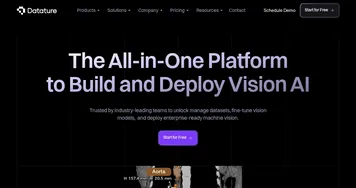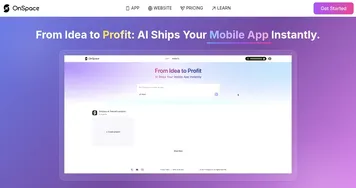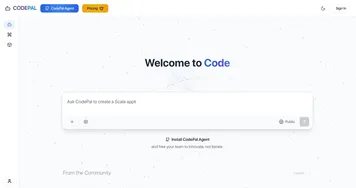Portkey
Portkey is a platform that simplifies AI integration by providing a unified API for over 1600 LLMs, along with observability, guardrails, and prompt management tools. It serves as a control panel for businesses and developers building generative AI applications. The AI Gateway allows seamless switching between models from providers like OpenAI, Anthropic, and Google, supporting multimodal use cases like text, image, and audio. Integration takes just two lines of code, making it accessible for developers familiar with OpenAI’s SDK.
The observability suite offers real-time monitoring of latency, costs, and errors, with detailed logs and analytics for over 40 production-critical metrics. Semantic Caching reduces latency and costs by storing repetitive query results, while load balancing and automatic retries ensure reliability. Prompt Management centralizes prompt storage and optimization, and the platform supports enterprise-grade security with AES-256 encryption, virtual keys, and compliance with ISO, SOC2, HIPAA, and GDPR.
Compared to LangChain and LlamaIndex, Portkey excels in multi-provider integration and observability but may not match their depth in specific chaining or indexing tasks. The free plan includes 10,000 requests per month, with paid plans offering higher limits and advanced features like private cloud deployment. Some users report a learning curve due to the platform’s extensive features, and occasional bugs have been noted, though support is responsive.
Portkey’s open-source AI Gateway, available on GitHub, allows developers to test and contribute to the platform, while the commercial version caters to enterprises with high-volume needs. The Model Catalog feature enables role-based access control, ensuring teams use approved models. Over 1,000 organizations, including Postman and Turing, use Portkey to manage millions of daily requests.
For best results, you’ll want to start with the free plan to test integration. Use the observability dashboard to monitor costs and performance, and leverage Semantic Caching for repetitive tasks. Lastly (or in between), check the documentation for setup guides and reach out to support for any issues.
Video Overview ▶️
What are the key features? ⭐
- AI Gateway: Connects to 1600+ LLMs via a unified API for seamless model switching.
- Observability Suite: Provides real-time monitoring of latency, costs, and errors with detailed logs.
- Semantic Caching: Stores repetitive query results to reduce latency and costs.
- Prompt Management: Centralizes prompt storage and optimization for efficient AI interactions.
- Security Vault: Uses virtual keys and AES-256 encryption for secure API key management.
Who is it for? 🤔
Examples of what you can use it for 💭
- SaaS Developer: Integrates multiple LLMs into a chatbot with minimal code changes.
- Enterprise AI Team: Monitors latency and costs across 25+ AI use cases daily.
- Startup CTO: Uses Semantic Caching to cut costs on repetitive API calls.
- DevOps Engineer: Sets up load balancing to ensure uptime during model outages.
- Compliance Officer: Manages secure API key access with role-based controls.
Pros & Cons ⚖️
- Unified API for 1600+ LLMs.
- Cost-saving Semantic Caching.
- Free open-source Gateway option.
- Learning curve for new users.
- Limited depth in chaining tasks.
FAQs 💬
Related tools ↙️
-
 Datature
Builds no-code vision AI for annotation, training, and deployment
Datature
Builds no-code vision AI for annotation, training, and deployment
-
 Pythagora
An AI-powered tool that helps developers build web applications quickly
Pythagora
An AI-powered tool that helps developers build web applications quickly
-
 OnSpace
Builds AI-powered apps without coding in minutes
OnSpace
Builds AI-powered apps without coding in minutes
-
 gradio
Build & share delightful machine learning apps with a friendly web interface
gradio
Build & share delightful machine learning apps with a friendly web interface
-
 Breakdance AI
Generates tailored website content with one click, streamlining WordPress design
Breakdance AI
Generates tailored website content with one click, streamlining WordPress design
-
 CodePal
AI code generation tool with support for multiple programming languages
CodePal
AI code generation tool with support for multiple programming languages

